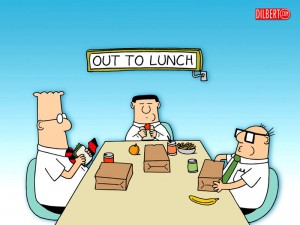Posts Tagged ‘retirement’
Posted on: February 9th, 2015 by Amy Bolger
 When it comes to retirement, there are many things to consider: taxes rates, vacations, and maybe where you plan on living. But experts are saying that there are 2 major obstacles that must be factored into your plans: the old notion that, “hey, I can work later in life” and make up for my savings then, and the diagnosis, either by you or a loved one, with Alzheimer’s disease. Research has indicated that many Americans plan to keep working as a way to make up for not having saved enough or invested wisely enough for retirement, or as a way to keep health insurance. These are both good reasons to continue working, however, many companies, according to the unemployment reports, are still laying off, specifically, 55 years and older employees. No assumptions can be made that a job will be there for you when you reach that age or are coming up to that age, so you should look at other options now. You should speak with a financial adviser, as it is never too late to plan for your retirement, but not doing it at all can prove problematic to your future well-being. When it comes to retirement, there are many things to consider: taxes rates, vacations, and maybe where you plan on living. But experts are saying that there are 2 major obstacles that must be factored into your plans: the old notion that, “hey, I can work later in life” and make up for my savings then, and the diagnosis, either by you or a loved one, with Alzheimer’s disease. Research has indicated that many Americans plan to keep working as a way to make up for not having saved enough or invested wisely enough for retirement, or as a way to keep health insurance. These are both good reasons to continue working, however, many companies, according to the unemployment reports, are still laying off, specifically, 55 years and older employees. No assumptions can be made that a job will be there for you when you reach that age or are coming up to that age, so you should look at other options now. You should speak with a financial adviser, as it is never too late to plan for your retirement, but not doing it at all can prove problematic to your future well-being.
The second possible obstacle is Alzheimer’s disease, either suffered by you or a loved one. It is estimated that around 5.3 million people now suffer from this disease. And the prevalence of Alzheimer’s is supposed to grow by at least 80% by 2025. You don’t have to go on facebook to realize that there is only one degree of separation between you and someone with Alzheimer’s or dementia; and you may also realize that those most affected by this terrible disease are women. When families are faced with this diagnosis, they are often left scrambling and are subject to fall victim to any one or all of these fraudulent practices: medical, financial, and legal. Because of this, understanding that there is a 3-20 yr. lifespan for this disease, and speaking with an estate planner or financial adviser about how to plan for 20 years of dependent care (just in case) is the most responsible financial move you can make. The second most important decision you must make is choosing your beneficiaries and power of attorney(s). The more decisions you take control of now, the less worrying you will have later.

Tags: estate planner, facebook, financial adviser, lifespan, linkedin, retirement
Posted in CPA Rockvile |
No Comments »
Posted on: May 11th, 2010 by Amy Bolger
 People often mistakenly associate the word “estate” with an abundance of wealth or a large home when, in reality, it is relevant to everyone. An estate is everything a person owns when he or she dies, including home and personal property, all investments, whether they be accounts (of all varieties), retirement plans, real estate, or businesses. Most of us have not necessarily been paying much attention to estate tax in recent years because it wasn’t effecting our financial plan. But as of January 1, 2011, the Federal estate tax is scheduled to rise from the ashes. Only $1 million will be exempt with the rest being taxed at 55% (sometimes 60%). With that in mind, we need to start going over the ins-and-outs of estate tax again. People often mistakenly associate the word “estate” with an abundance of wealth or a large home when, in reality, it is relevant to everyone. An estate is everything a person owns when he or she dies, including home and personal property, all investments, whether they be accounts (of all varieties), retirement plans, real estate, or businesses. Most of us have not necessarily been paying much attention to estate tax in recent years because it wasn’t effecting our financial plan. But as of January 1, 2011, the Federal estate tax is scheduled to rise from the ashes. Only $1 million will be exempt with the rest being taxed at 55% (sometimes 60%). With that in mind, we need to start going over the ins-and-outs of estate tax again.
First, assets inherited or received as gifts from a spouse are not taxed; its called the “unlimited marital deduction.” It doesn’t avoid estate tax, it postpones it. Anything that remains when the second spouse dies would be taxable as part of their estate. This just leaves the remaining spouse more to live on while he or she is alive.
One big mistake people make is buying a life insurance policy and naming themselves as the owner. When they do that, the proceeds become part of their estate, only adding to the amount that they are leaving behind. If that total is more than the exemption amount and they left it to someone other than their spouse or charity, it becomes subject to estate tax.
Charitable gifts you make during your life can be much more tax-efficient than gifts through your estate plan. One advantage is that you can take an income tax deduction for the year in which the gift was made. Another benefit is that the donation reduces your net worth and leaves less that could be subject to estate tax. In contrast, if you make a gift in your will, it reduces your taxable estate, but there is no income tax write-off.
Most methods of saving estate taxes require you to totally give up ownership and control over assets, whether you are giving them to people directly or putting them in a trust. If this is the route that you choose to take, make sure you are leaving yourself enough, and to be on the safe side, you should assume you will live to an advanced age.
The biggest mistake people make is failing to make an estate plan. No one is immortal and its a realization we must all come to. You can’t just assume that your loved ones will know what you want done with your estate. And you are also leaving a bigger burden on them if you fail to plan for the pitfalls of the estate tax. We all want what is best for our loved ones, so take the time to plan so that you can care for them when you are no longer here as well.

Tags: estate planner, federal estate tax, financial planner, retirement, taxable estate
Posted in CPA Rockvile, Financial Planning Rockville |
No Comments »
Posted on: May 8th, 2010 by Amy Bolger
 When reading about ways to cut costs, we often read about turning off the lights when we leave the room, buying in bulk, using energy saving light bulbs, or even putting tap water in our reusable water bottles instead of buying bottled water. And then when we follow through with these tips, we feel better about ourselves. Then we hear about clipping coupons and spending hours reading the ads to find stores with the best deals, but a lot of us don’t have the time, can’t be bothered, or even forget to use those pesky coupons at the store and we feel bad. There are other ways, that require small changes in lifestyle that can help you save and are not as difficult though. The biggest thing is to eat out less. 45% of the average family’s food budget is spent on meals prepared outside of the home. Imagine how much money you can save just by eating the food you already own at home. When reading about ways to cut costs, we often read about turning off the lights when we leave the room, buying in bulk, using energy saving light bulbs, or even putting tap water in our reusable water bottles instead of buying bottled water. And then when we follow through with these tips, we feel better about ourselves. Then we hear about clipping coupons and spending hours reading the ads to find stores with the best deals, but a lot of us don’t have the time, can’t be bothered, or even forget to use those pesky coupons at the store and we feel bad. There are other ways, that require small changes in lifestyle that can help you save and are not as difficult though. The biggest thing is to eat out less. 45% of the average family’s food budget is spent on meals prepared outside of the home. Imagine how much money you can save just by eating the food you already own at home.
A lot of people go out to eat for lunch at work. One of the main reasons is the social gathering of the meal. Instead of going to a restaurant with your friends, suggest going to a grocery store, if there is one nearby, and having lunch outside. Yeah, a prepared meal from a grocery store may cost you $4, but that is a lot less than you would spend at a restaurant. If you are not near a grocery store, pack your lunch and arrange for your friends at work to do so and make it exciting by coming up with a fun place to eat and socialize.
While entirely cutting out the dining out experience isn’t for everyone, just remember that when you do, do so in moderation. There is no need to go to Ruth’s Chris Steakhouse and then order the most expensive dishes on the menu. Scale it back a bit and keep in mind your budget. We meet with financial planners about our retirement for a reason. Spending all your extra money on eating is money you could have put into your 401(k) or paid off debt with. Think about more important things you could be doing with that money before you go out.

Tags: clipping coupons, energy saving light bulbs, financial planners, linkedin, retirement, reusable water bottles
Posted in Financial Planning Rockville |
No Comments »
Posted on: April 26th, 2010 by Amy Bolger
 After reaching age 70 1/2, owners of traditional IRAs fall victim to the required minimum withdrawal rules. You must take annual withdrawals of specified amounts (at least) and pay the related federal and state income tax hits. Thankfully, if you own a Roth IRA, it’s exempt from the required minimum distribution rules for as long as you live. So if you own nothing but Roth IRAs, you can skip this article. After reaching age 70 1/2, owners of traditional IRAs fall victim to the required minimum withdrawal rules. You must take annual withdrawals of specified amounts (at least) and pay the related federal and state income tax hits. Thankfully, if you own a Roth IRA, it’s exempt from the required minimum distribution rules for as long as you live. So if you own nothing but Roth IRAs, you can skip this article.
Beneficiaries of inherited traditional and Roth IRAs fall under a separate set of required minimum withdrawal rules. Failure to withdraw at least the required amount for the year means getting socked with a 50% penalty on the difference between what should have been withdrawn and what is actually withdrawn (if anything). This is one of the most brutal penalties in our beloved Internal Revenue Code. You should speak with your financial planner about your retirement planning if you don’t have a plan yet or about converting your old plan to a Roth IRA.

Tags: beneficiaries, financial planner, linkedin, minimum distribution rules, retirement, roth iras, traditional iras
Posted in Financial Planning Rockville |
No Comments »
Posted on: April 20th, 2010 by Amy Bolger
 People who think about moving to a new home in retirement invariably plan on buying that home. In some cases, though, renting may be the smarter option. Real estate markets are still fairly volatile even though home prices in some areas are beginning to stabilize. One of the easiest ways to approach the buy versus rent question is to use the “price to rent ratio”. Just take 2 houses of similar size and quality, one for sale and one for rent, in the same neighborhood or comparable neighborhoods; then take the price of the home for sale and divide it by the total cost of renting the other house for a year. If the resulting number is higher than 20, it’s likely the price of the home for sale could fall further. Thus, renting would be the better option. However, the price is most likely near its low if the figure is 15 or below. 15 is the number at which rental and ownership costs are close to even. People who think about moving to a new home in retirement invariably plan on buying that home. In some cases, though, renting may be the smarter option. Real estate markets are still fairly volatile even though home prices in some areas are beginning to stabilize. One of the easiest ways to approach the buy versus rent question is to use the “price to rent ratio”. Just take 2 houses of similar size and quality, one for sale and one for rent, in the same neighborhood or comparable neighborhoods; then take the price of the home for sale and divide it by the total cost of renting the other house for a year. If the resulting number is higher than 20, it’s likely the price of the home for sale could fall further. Thus, renting would be the better option. However, the price is most likely near its low if the figure is 15 or below. 15 is the number at which rental and ownership costs are close to even.
There are other factors to consider when deciding whether to buy or rent. If you have reason to believe that you are building equity, its okay to pay more to own. A low price to rent ratio on a property that you plan on being in for more than a decade should signal an attractive buy even if the monthly payment is a bit higher. But, if you are paying more in context and are unlikely to build equity due to a falling housing market or you won’t be in the home long enough to build equity, you should definitely not buy.
Sitting down with a reputable real estate agent and financial planner can help you decide which options might be best for you. Whether you are trying to decide whether to live in the city or suburbs or whether to rent or buy, having professionals help you is always the smartest move.

Tags: financial planner, housing market, linkedin, ownership costs, real estate agent, retirement
Posted in CPA Rockvile |
No Comments »
|
|
 When it comes to retirement, there are many things to consider: taxes rates, vacations, and maybe where you plan on living. But experts are saying that there are 2 major obstacles that must be factored into your plans: the old notion that, “hey, I can work later in life” and make up for my savings then, and the diagnosis, either by you or a loved one, with Alzheimer’s disease. Research has indicated that many Americans plan to keep working as a way to make up for not having saved enough or invested wisely enough for retirement, or as a way to keep health insurance. These are both good reasons to continue working, however, many companies, according to the unemployment reports, are still laying off, specifically, 55 years and older employees. No assumptions can be made that a job will be there for you when you reach that age or are coming up to that age, so you should look at other options now. You should speak with a financial adviser, as it is never too late to plan for your retirement, but not doing it at all can prove problematic to your future well-being.
When it comes to retirement, there are many things to consider: taxes rates, vacations, and maybe where you plan on living. But experts are saying that there are 2 major obstacles that must be factored into your plans: the old notion that, “hey, I can work later in life” and make up for my savings then, and the diagnosis, either by you or a loved one, with Alzheimer’s disease. Research has indicated that many Americans plan to keep working as a way to make up for not having saved enough or invested wisely enough for retirement, or as a way to keep health insurance. These are both good reasons to continue working, however, many companies, according to the unemployment reports, are still laying off, specifically, 55 years and older employees. No assumptions can be made that a job will be there for you when you reach that age or are coming up to that age, so you should look at other options now. You should speak with a financial adviser, as it is never too late to plan for your retirement, but not doing it at all can prove problematic to your future well-being.




